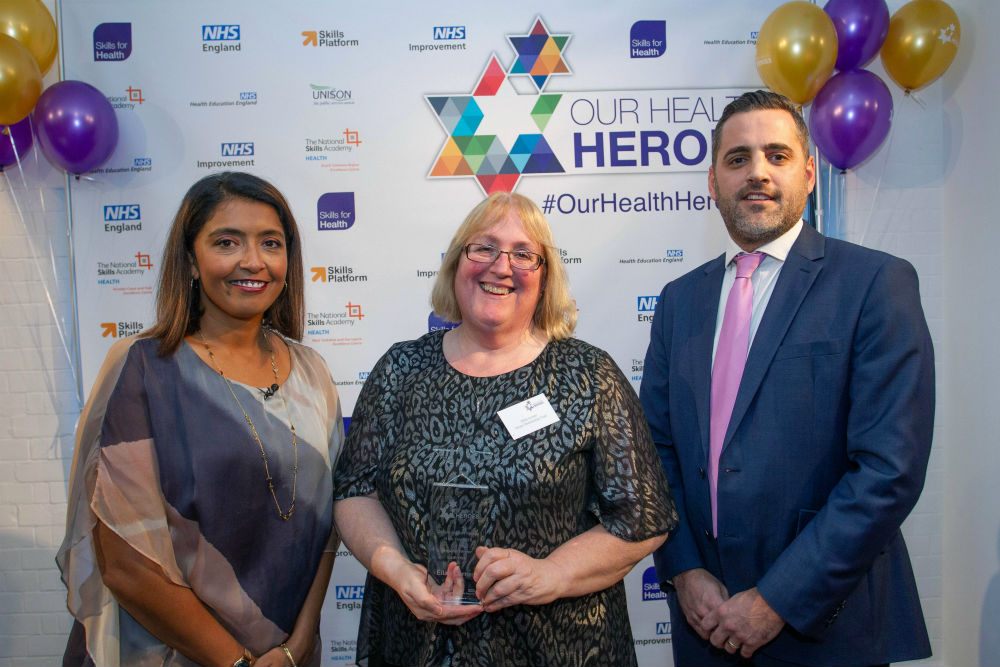Ellan Corner explains why taking individual needs into account is so important when working with people with a learning disability
Hospitals, GP surgeries, opticians and dentists – many health care settings are frightening places when you don’t understand what’s going on. Needles hurt. Tests are confusing. Someone messing with your eyes is extremely unpleasant.
So my job is to support adults with learning disabilities to get the treatment they need, such as health checks. I help them understand what’s available and why it’s important to attend appointments and tests.
My role is all about talking to people and making sure they understand what’s going on. We shouldn’t be surprised if people are uncooperative when they haven’t had what’s happening explained to them in a way they can understand.
Reasonable adjustments
A lot of my work is about communicating information in a simple way and making sure reasonable adjustments are made. Providing relevant easy-to-read information is important and using pictures is a great way to help people understand what’s going to happen.
It can take a long time but we’re often successful and that’s what really matters
For example, if someone needs a blood test for an underactive thyroid and they’ve had a bad experience in the past, we need a specific care plan to make sure they get the test they need. I’m on hand to break down the process into small steps. It can take a long time but we’re often successful and that’s what really matters.
We always take the individual’s needs into account. For some it’s helpful to visit a GP surgery in advance and see the same practice nurse each time. In fact desensitisation is important in many scenarios like going to the dentist or getting nails cut. We found that practising with the equipment really helps too.
One of my colleagues mocked up a needle – it was made of plastic but looked like the real thing, and using it has really helped the people we work with prepare for a range of treatments.
Some patients need eye tests so I arrange Friday lunchtime visits when it’s quiet at the local general hospital. It’s all about getting used to the environment by looking at the machines before anything actually has to happen.
Caring for older people
I really enjoy working with people with Down’s syndrome. Just 100 years ago this group of people weren’t expected to live much beyond childhood. Now their average life expectancy is 50 to 60 years so we need to make sure these individuals get access to the most appropriate health services for them. One size doesn’t fit all.
For example, it’s important for people with Down’s syndrome to have an annual health check as some may have more age-related health problems at an earlier stage than the general population. Cataracts, osteoporosis and gum disease can all be serious concerns.
It’s important for people with Down’s syndrome to have an annual health check
These individuals and their families need support to face end-of-life decisions too. They often need to confront big decisions earlier than others. Again, this is where the team I work in can help.
Advanced care planning is essential so an end-of-life checklist was developed by learning disability nurses in conjunction with palliative care services locally. The checklist can be used more widely by anyone working with people with complex health needs at the end of life.
It can help ensure people’s individual needs are considered and we can make sure all the relevant services are in place.
A positive future
Looking to the future, I can see a mixed outlook. Sadly too many people are still too quick to make assumptions when people with a learning disability need medical help. Just because someone wears a hearing aid, it doesn’t mean their complaint about hearing should be ignored. They can still get ear infections, and they still deserve to be treated.
I’ve worked with people with a learning disability for more than 19 years now and I wouldn’t want to do anything else
It also worries me that many prospective nursing staff don’t see working with people with a learning disability as an interesting or rewarding career. We’ve seen a huge drop in the number of student nurses coming to us and recently we struggled to recruit to one of our nursing posts. But I’ve worked with people with a learning disability for more than 19 years now and I wouldn’t want to do anything else.
My younger sister had a learning disability and my nephew has Down’s syndrome, and right now I want to make sure we get things right for him when he gets older. Let’s focus on individuals and concentrate on the successes. I know that by doing this the future can be positive.

RCN member Ellan Corner is an assistant practitioner with Teignbridge Primary Care Liaison Team. She won a regional award in the Skills for Health Our Health Heroes Awards in the clinical support worker category.
The RCN view
Anne Norman, RCN learning disability professional lead, said: "The RCN is prioritising work in this important area of practice and we have linked closely with Mencap following their launch of a three year Treat Me Well campaign at the RCN last year.
"We’ve delivered some joint training already. The RCN Learning Disability Forum will leading a project this year on promoting learning disability nursing to young people."
Further information
- Find out more about the Down’s Syndrome Association.
- Join the RCN Learning Disability Forum.
- Find out more about a career in learning disability nursing.
- Find out more about the Skills for Health Our Health Heroes Awards.
Interview by Sharon Palfrey








